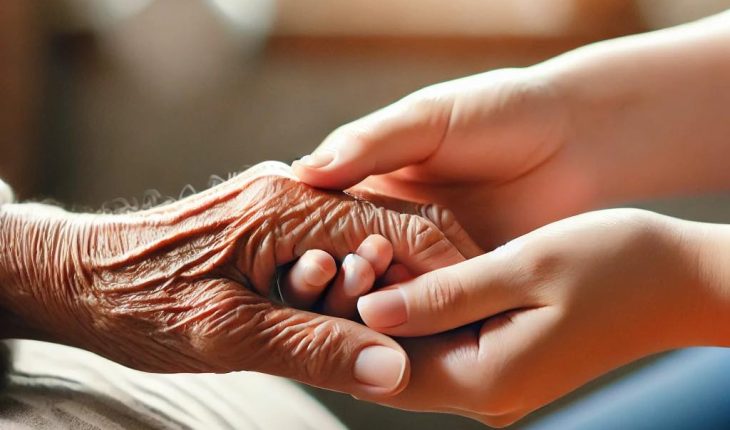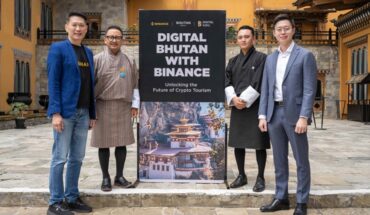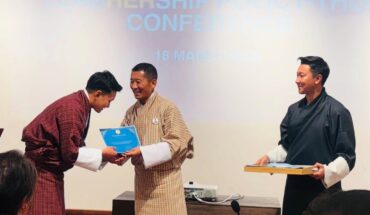
KINZANG DORJI TSHERING
Thimphu
As Bhutan undergoes a demographic transition marked by longer life expectancy and an increasingly mobile younger generation, the country faces urgent questions about how best to care for its aging population.
Against this backdrop, Charo Wongdo, Bhutan’s first professional elder care service provider, is positioning itself as a sustainable solution rooted in compassion, cultural sensitivity, and global best practices.
In an exclusive interview with BT, Phuntsho Wangdi, CEO of Charo Wongdo, outlined the company’s long-term vision, challenges, and strategies for balancing Bhutanese traditions with professional caregiving models.
His insights shed light not only on the company’s business model but also on the broader societal shifts influencing elder care in Bhutan.
According to Wangdi, Bhutan’s demographic profile points toward a steady rise in its elderly population. Citing National Statistics Bureau figures, he noted that life expectancy reached 70.2 years in 2023, with women living longer at 71.7 years compared to men at 68.8.
Projections by the United Nations Population Fund (UNFPA) suggest that by 2047, at least 13.4 percent of Bhutan’s population will be aged 65 and above.
“This shift is significant,” the CEO said. “As younger Bhutanese migrate overseas, many elders are left with limited family support, often facing loneliness and isolation. Our services are designed to meet this pressing need while also remaining economically viable.”
The CEO added that Charo Wongdo’s business model has been carefully assessed to ensure long-term sustainability. It draws from subscription-based plans, fee-for-service arrangements, bundled care packages, and value-added services, while also exploring partnerships and collaborations.
Currently, the company has begun operations in Thimphu, chosen because the capital has the largest concentration of elderly citizens. Expansion plans are already being considered for other towns and district headquarters where the elderly population is similarly growing.
However, he acknowledged that the introduction of professional care giving is not without its challenges. In a society where filial duty is a deeply respected value, many elders may resist outside caregivers, fearing that it represents a breakdown of tradition.
To counter this, Charo Wongdo has designed what he calls a “comprehensive and compassionate approach” that prioritizes trust-building.
“Our process begins with detailed assessments of family history, lifestyle, and emotional needs. We then match elders with caregivers whose personalities and skills align with the client. The goal is to build trust and continuity, ensuring elders feel supported rather than displaced,” he said.
Equally important to the company is its effort to harmonies Bhutanese traditions with international best practices. Bhutanese families have long taken responsibility for elder care, and Wangdi recognizes that this cultural foundation must be preserved.
“Bhutanese society is deeply rooted in respect for elders. We integrate that cultural ethos into our care philosophy, but we also adopt international best practices in areas such as caregiver training, safety protocols, and regulatory compliance,” he said.
He added that all communication and service delivery are designed to be culturally appropriate, ensuring that families feel reassured rather than alienated.
At the same time, the company upholds rigorous professional standards, including strict screening of staff, detailed record-keeping, confidentiality protections, and regular training to maintain quality.
As Charo Wongdo looks toward expansion into other dzongkhags, the CEO underlined that accountability and ethical care giving will remain top priorities.
The company has also adopted a multi-layered system of governance, which includes thorough recruitment processes, ongoing training, structured performance reviews, and independent audits.
“We are building a values-driven culture,” he said. “Feedback from clients and families is actively encouraged, and we have mechanisms for confidential reporting to ensure transparency and trust. This helps us to adapt and continuously improve.”
Beyond operating as a private service provider, Charo Wongdo also aspires to contribute to national policy dialogue.
The CEO added that while Bhutan’s Constitution guarantees social security for all citizens, elder care in practice remains largely informal and dependent on families.
Existing safety nets such as the National Pension and Provident Fund cover only a small section of the population, leaving many elders without reliable support.
“Charo Wongdo wants to be part of the national conversation,” he said. “We will work with government agencies, NGOs, and health professionals to share data, insights, and recommendations. Our aim is to contribute to a robust national framework for elder care without compromising our private-sector identity.”
The company plans to use evidence from its own operations to advocate for scalable and inclusive policies. It will also run awareness campaigns, publish research-based articles, and partner with civil society organizations and religious institutions to strengthen outreach.
“We believe advocacy and enterprise can go hand in hand. Our role is not just to deliver care but also to shape the larger environment in which elder care is understood and valued,” he added.
For him, the work of Charo Wongdo is more than a business venture. “We want to be recognized not just as a care provider, but as a thought leader in this emerging space. Elder care is not just about physical support—it is about dignity, respect, and emotional well-being,” he said.
He further noted that as Bhutan transitions toward a middle-income economy, the paying capacity of its citizens is likely to grow, making elder care services increasingly viable.
“We are committed to expanding carefully, ensuring quality, accountability, and compassion at every stage. Our elders deserve nothing less.”
Through its blend of tradition and modern care standards, Charo Wongdo is attempting to fill a gap that has long been unaddressed in the country’s social landscape.
Tandin Wangchuk, a civil servant in Thimphu, said Bhutanese families are indeed at a crossroads.
“Traditionally, we have always taken care of our parents at home. But with many young people moving abroad, it is no longer possible for every family to provide constant care. Professional services like Charo Wongdo might become necessary for the future,” he said.
On the question of how Bhutan should prepare for an aging population, Tandin suggested that the government and private sector must work together.
“If we wait until the crisis comes, it will be too late. We need clear policies, trained caregivers, and social awareness campaigns now,” he said.
He also welcomed the idea of a national elder care framework. “It is high time. Informal family-based care is not enough anymore. The government must take responsibility, and private firms can play a supporting role.”
Another Thimphu resident, Sonam Tobden, shared a slightly different perspective, stressing that professional services must remain rooted in cultural values.
“Elders in Bhutan value emotional connection and respect more than material comfort. If care services focus only on efficiency and professionalism, they may lose the human touch. We must strike a balance between tradition and modern standards,” he said.
Asked whether families would consider paying for elder care in the future, Sonam was cautiously optimistic.
He said, “Many people may hesitate now, but as our economy grows, more families will be willing to pay for reliable services. Personally, I would consider it if the care is truly compassionate and respectful.”
As Bhutanese society evolves, services like Charo Wongdo will not only test the viability of private elder care but also spark deeper reflection on how the nation defines dignity in aging.





